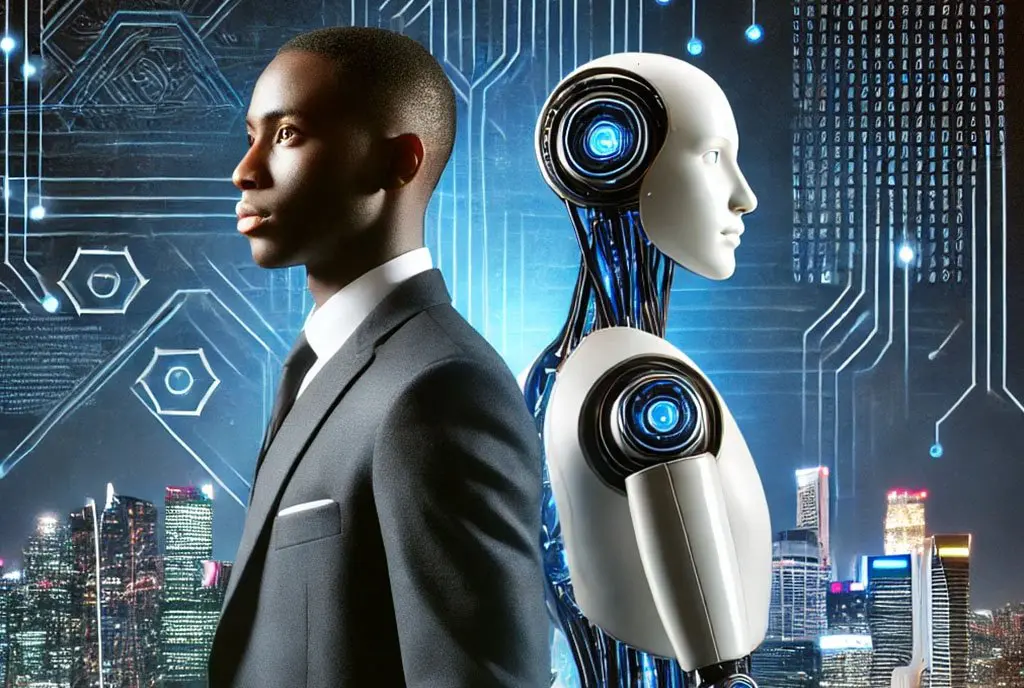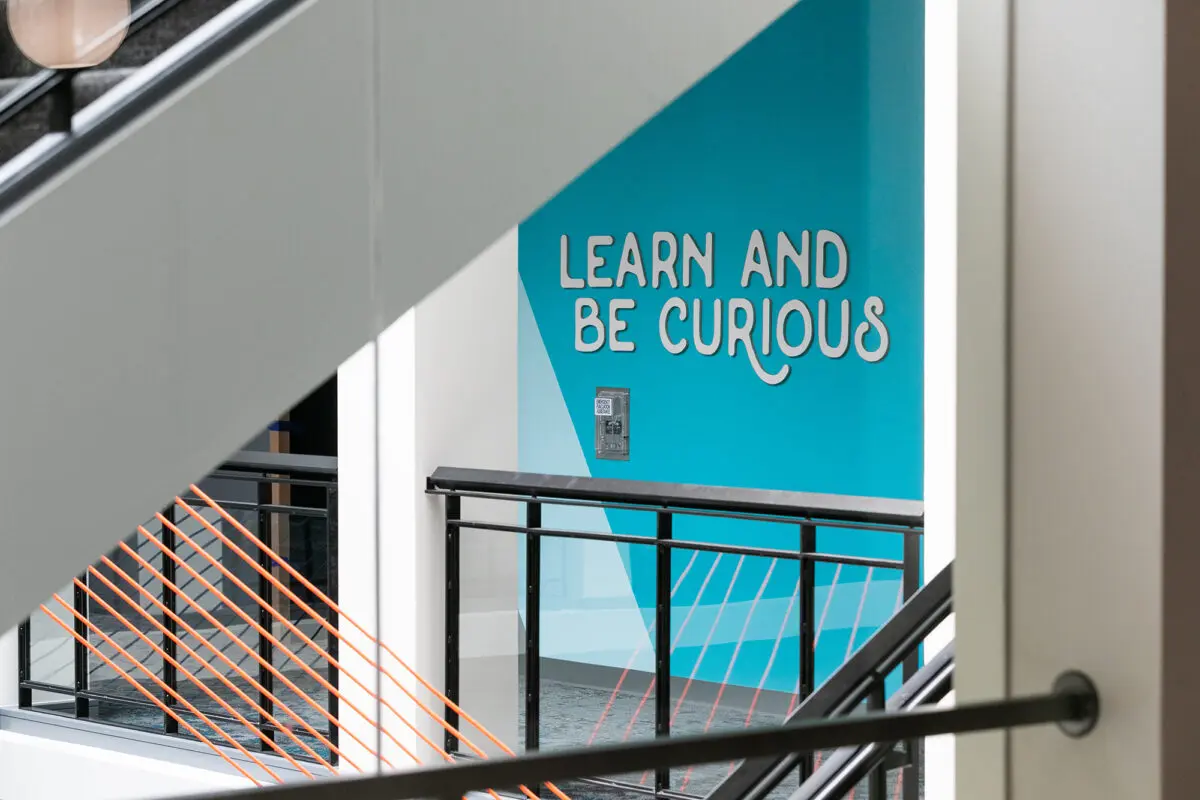The intersection of technology and recruitment is undergoing a transformation, with major companies like Amazon taking the lead in addressing the ethical dilemmas presented by the rise of artificial intelligence in job interviews. As the tech industry continues to evolve, Amazon’s recent crackdown on AI tools in job interviews raises critical questions about fairness, authenticity, and the future of the hiring process. While some see these AI technologies as game-changers for efficiency, others warn of the ethical implications surrounding their use, highlighting a growing divide between the benefits and concerns of AI integration in recruitment.
Amazon has established new guidelines aimed at regulating the use of AI tools during interviews, emphasizing the need for candidates to demonstrate their true abilities rather than relying on generative AI shortcuts. The discrepancy in opinions within the workforce indicates a wider debate on how to balance technological advancement with ethical hiring practices. The tech industry at large is grappling with these dilemmas, making it essential to explore the implications of AI enthusiasm in hiring and the ongoing contradictions present in the world of job interviews.
Understanding the Ethical Challenges in Amazon’s Hiring Strategy
Amazon, as one of the largest employers globally, has had to address the ramifications of incorporating artificial intelligence in job interviews. While the company has recognized the efficiency benefits of AI, it must also tackle the ethical concerns that arise when candidates use these tools during interviews. Reports suggest that internal discussions among Amazon staff reveal a split opinion on whether AI assistance is advantageous or detrimental.

The Guidelines Set by Amazon
In response to the growing tension surrounding AI usage, Amazon has released internal guidelines that highlight strict rules governing the use of generative AI applications during job interviews. Candidates may face disqualification if they are found using tools intended to provide answers or assist in their interview responses.
According to these guidelines, the rationale behind restricting AI tool usage stems from a desire to evaluate candidates on their “authentic” capabilities and expertise. The implications of this decision are significant, as companies like Amazon strive to uphold a fair recruitment process that genuinely reflects candidates’ skills. Employers are concerned that relying on AI could result in a misrepresentation of a candidate’s qualifications, creating a landscape where the line between genuine ability and AI assistance is blurred. These guidelines stress transparency and adherence, which are crucial elements of modern recruitment strategies.
Spotting Signs of AI Tool Usage in Interviews
To further support their objective of maintaining integrity in the interview process, Amazon has shared internal tips aimed at identifying candidates who may be relying on generative AI tools. Some indicators include:
- The candidate seems distracted or overly confident in their responses.
- They display unusual behavior, such as checking the screen or appearing to read answers rather than engaging naturally.
- Their eye movements suggest they might be tracking text or information not visible to the interviewer.
- Confusion or distractions occur when their AI-generated answers are irrelevant to the question asked.
Such strategies underscore the company’s commitment to safeguarding its recruitment process from potential dishonesty while promoting an environment where candidates can showcase their actual qualifications. The challenge lies in distinguishing genuine competence from AI-augmented assistance.
A Broader Perspective: AI and the Recruitment Landscape
Amazon’s crackdown on AI in job interviews isn’t an isolated phenomenon. Across the tech industry, organizations are grappling with the tech industry hiring trends that involve AI tools. The rising enthusiasm for AI in hiring practices presents both opportunities and ethical dilemmas that are reshaping recruitment strategies worldwide. Stakeholders are increasingly concerned about how to employ these technologies responsibly while ensuring fairness in candidate selection.
The Embrace of AI in Hiring Practices
Some companies have embraced AI tools as a means to enhance efficiency and streamline their hiring processes. While AI can assess resumes and identify potential candidates quickly, it also begs the question of how much reliance on technology truly reflects a candidate’s potential. The conversation around Amazon recruitment strategies and the broader implications of generative AI poses significant concerns regarding the balance between human judgment and technological intervention in hiring.
Moreover, organizations must also address the ethical implications of using these tools. They are designed to optimize searches for ideal candidates, yet many hiring managers express skepticism about their reliability. Some experts warn that these tools risk misrepresenting candidates, thus jeopardizing the integrity of the hiring process. As a result, the industry is recognizing the importance of revising recruitment strategies to ensure they account for both technological advantages and human-driven insights.
Impacts of AI in Job Interviews
Several benefits of AI integration in job interviews are evident. These tools can, for instance, reduce bias in hiring processes by standardizing evaluations and encouraging equal opportunity for all candidates. However, relying too heavily on machines can also overshadow the human aspects of recruitment, such as creativity, emotional intelligence, and authentic communication skills.
Additionally, the inconsistent application of AI tools raises questions about their broader ethical implications. For job seekers, particularly those in technology-driven fields, there is a growing concern about whether their skills are adequately captured by the algorithms and systems used in hiring practices. This has led to an internal and external debate on the ethical use of technology in recruitment and highlights a gap between employer expectations and the candidacy landscape.

AI vs Human Interviewers: Finding the Right Balance
The dynamics of job interviewing are evolving, leading to a discussion about the future implications of AI vs human interviewers within hiring. As many organizations adopt techniques that incorporate AI systems, a critical examination is necessary regarding the role of traditional recruitment practices. The emphasis on high-stakes interview assessments raises valid concerns about fairness and integrity.
Fairness in Hiring Practices
The growing concern over bias in recruitment has prompted hiring managers to consider AI tools as a potential solution for creating a fairer selection process. However, many experts caution against neglecting the value of human insight in assessing candidates. Studies indicate that while AI can pinpoint desired skills, it might miss the nuances that can only be recognized through human interaction. Consequently, the question remains: can we genuinely achieve fairness without a balanced perspective that integrates technology with human instincts?
As companies navigate these complexities, traditional best practices such as in-person interviews and assessment tests serve as necessary counterparts to AI tools. By combining machine learning and human judgment, employers might strike a more effective approach that preserves the human element within recruitment processes.
Adapting to the Changing Landscape of Recruitment
Moving forward, companies must adapt their interviewing frameworks to reflect the changes brought on by technology while maintaining integrity in judgment. Innovative organizations are exploring hybrid models where they integrate AI-assisted assessment techniques alongside traditional interview methods, which reflects an understanding of the benefits and limitations of both approaches.
Such models promote a comprehensive recruitment process that prioritizes authenticity, transparency, and ethical concerns while still recognizing the value that AI solutions bring to recruitment efficiency. For candidates, these frameworks ensure that opportunities remain equitable and accessible, despite the technological advancements that may influence their chances.
The Future of AI in Recruitment
Looking ahead, it’s essential for organizations such as Amazon to continuously evaluate their job application process as AI tools evolve. The potential of machine learning in recruitment is vast, yet it comes with discernible risks that require careful consideration. Employers are tasked with ensuring that these technologies serve to enhance rather than replace the human aspects of hiring.
Encouraging Open Conversations on AI Usage
Encouraging ongoing discourse about the implications of job interviewing with AI will be vital for shaping best practices in recruitment. With varying perspectives among employees and management, fostering open conversations around the ethical use of AI in hiring will help bridge existing gaps and misconceptions.
Moreover, a culture that values human judgment while embracing technology can empower companies to implement innovative and effective recruiting strategies. By prioritizing transparency and ethical considerations, organizations will be better positioned to navigate the complexities that arise from integrating AI into their hiring methodologies.
The Role of Employees in Shaping Recruitment Strategies
Frontline employees within organizations play a crucial role in shaping recruitment policies, particularly in industries where technological disruption is prevalent. Internal conversations about the place of AI in the hiring process can foster collaboration between management and talent acquisition teams. This collaboration can lead to innovative practices that effectively combine the advantages of AI with the invaluable insight that human employees provide.
| Advantages of AI Tools | Disadvantages of AI Tools |
|---|---|
| Efficiency in processing applications and identifying candidates | Potential misrepresentation of candidates’ qualifications |
| Standardized assessments can reduce bias | Lack of human insight in evaluating candidates’ soft skills |
| Ability to analyze vast data for trend forecasting | Risk of inaccuracies due to reliance on algorithms |
| Enhanced recruitment performance measurement | Ethical concerns around transparency and fairness |
The conversation surrounding AI in recruitment—particularly in high-stakes environments like Amazon—indicates the necessity for alignment between modern hiring methods and ethical considerations. As organizations like Amazon navigate this evolving landscape, they can find solutions that foster integrity, transparency, and fair opportunity in the recruitment process.
Source: www.businessinsider.com
Hi there! I’m Jade, a 38-year-old gossip journalist with a passion for uncovering the juiciest stories in the world of celebrity news. With years of experience in the industry, I love sharing the latest trends and insider scoops.



